Friends of the Earth have announced that Labour has the strongest green manifesto in this election, but only after securing extra-manifesto commitments from them.
The assessment, published today, looked at the manifestos of the Labour, Conservative, Liberal Democrats and Green parties. These were scored against Friends of the Earth's election asks — which covered ten areas including, climate targets, energy, transport, food and nature. The manifestos were marked out of 45.
The final assessment saw Labour, Lib Dems and Greens all marked highly, but with the Labour Party given a slightly higher score overall. The Conservative Party scored poorly: its manifesto was judged to be missing significant commitments in numerous areas, inadequate policies in others, and actively damaging policies in transport.
- Labour: 33
- Green: 31
- Liberal Democrat: 30
- Conservatives: 5.5
I admit that relying on a letter suggesting Labour would go further than the manifesto is not, in my opinion, a good way of appraising green commitments. I prefer Greenpeace's approach, which ignores such additional information. As they have noted of their appraisal:
To help you decide where to place your vote, Greenpeace policy experts have analysed the manifestos and other relevant commitments published by the main parties. Each party has been graded on how well its promises match up to key things that need to be done in four really important areas. Whatever happens with Brexit, these have to be a priority to tackle the twin threats of the climate crisis and the breakdown of nature.
They end up with this league table:
This is their Green Party analysis:
Labour looked like this:
That looks to be objective to me. As does this for the SNP:
And this for the LibDems:
And in the interests of balance this was their assessment of the Tories' poor showing: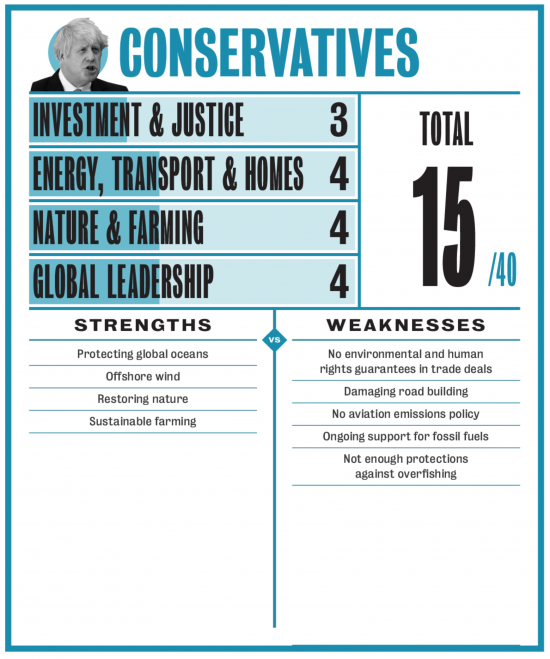
I have to say that looks generous to me.
Who do I think overall has the best policies? I am astonished Friends of the Earth think it is Labour. I am afraid nothing they say comes close to the Greens overall on this issue, and Greenpeace call that correctly.
But there is a comfort: however you vote ABC (Anything But Conservative) the commitment to green issues is high whilst voting Conservative would be to ignore the issue. It is that blunt.
Thanks for reading this post.
You can share this post on social media of your choice by clicking these icons:
You can subscribe to this blog's daily email here.
And if you would like to support this blog you can, here:

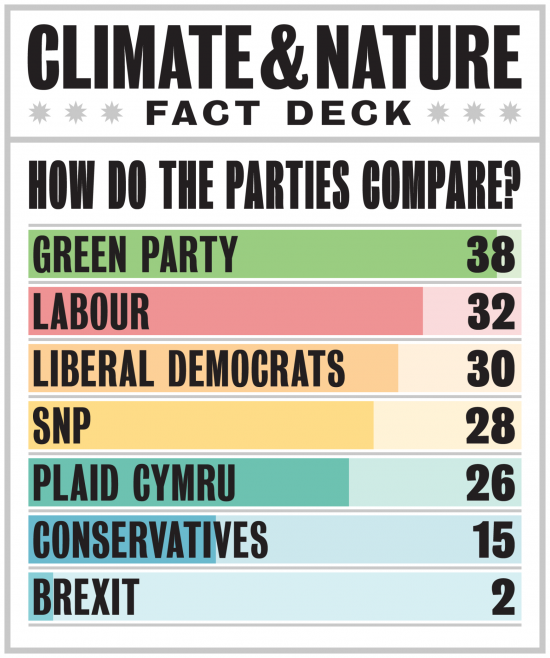
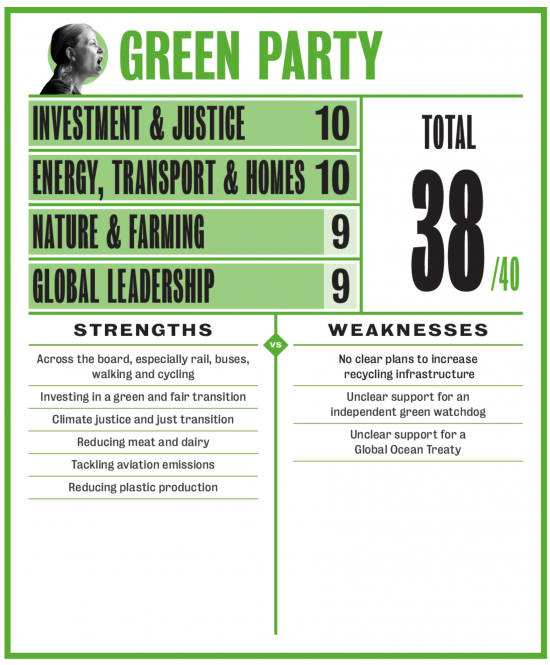
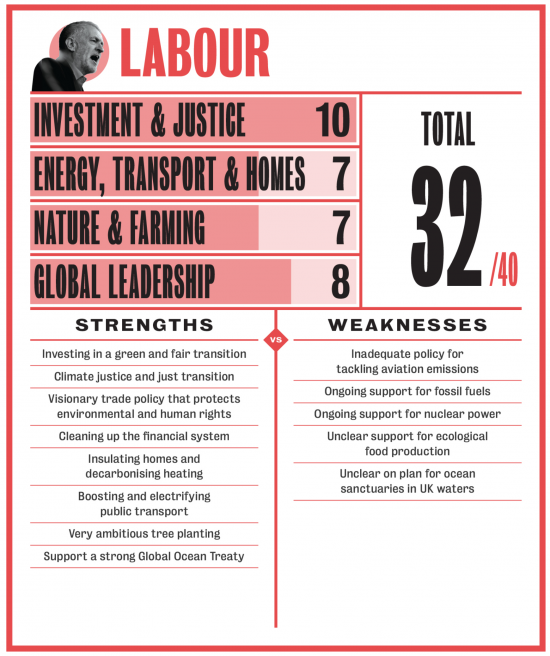
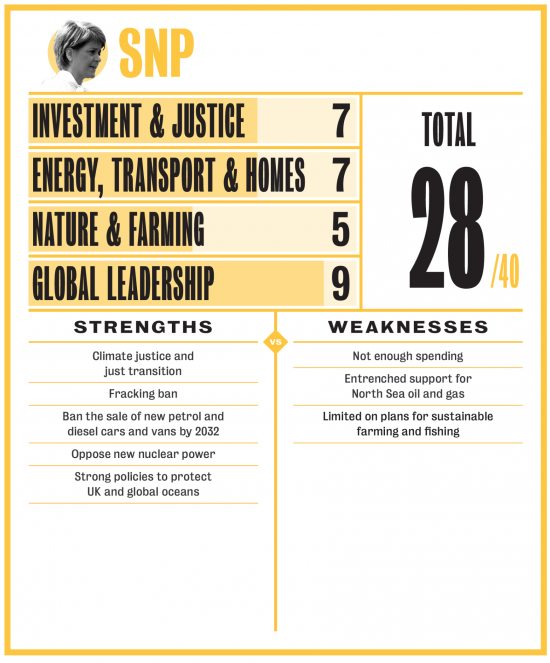
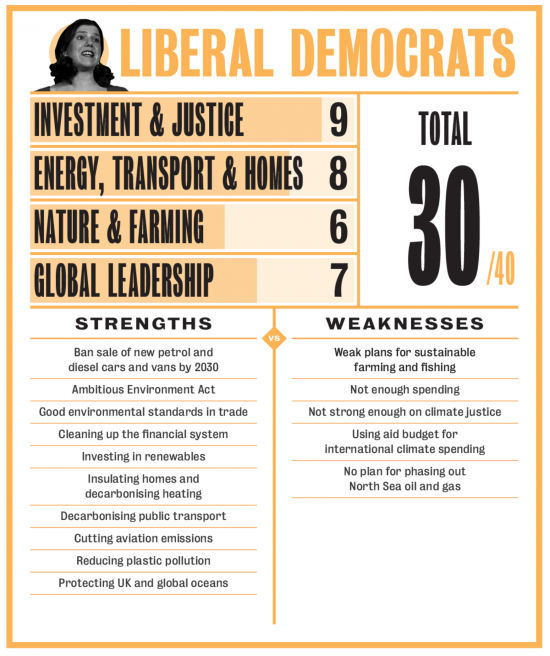


[…] have been focussing on the green dimensions to deciding who to vote for in this election, but in a blog stall called Tax Research that does […]
Labour’s support of aviation and airport expansion is a worry as is their faith in nuclear power and nuclear weapons. However their Green new Deal is good. It is obvious to vote Labour if there is a chance of beating the Tory as in my constituency (the Green candidate has pulled out). However if Labour has no chance of beating the Tory and there is a Green candidate standing “waste” your vote for them rather than on Labour. Proportional representation would remove these sometime difficult quandaries. But as you point out it is curious that FOE put Labour first when Greenpeace has the Green party way ahead of Labour.
Look at the numbers for the young going to vote. Is doubled or more
https://twitter.com/search?q=comres&src=typed_query
18-24: 60% (+11)
25-34: 61% (+8)
35-44: 62% (-)
45-54: 62% (-6)
55-64: 79% (+7)
65+: 78% (-1)
ComRes Poll 25-26 Nov
https://www.comresglobal.com/wp-content/uploads/2019/12/Final-Savanta-ComRes_Remain-United_291119.pdf
https://www.comresglobal.com/polls/remain-united-election-poll-december-2019/
Labour at 33 +1 with no minius and the 36+4 shows a labour increase. So i am confused. The last link is the lab 36+4 poll.
Also the first pdf shows how low comres thinks the youth will turn out, half of what the older people is planning to do
https://www.bloomberg.com/news/articles/2019-11-30/tories-lead-over-labour-narrows-to-six-points-bmg-poll-shows.
Any advice would be greatly appreciated
[…] in the face of the crisis we face. Add a drop more populism, and Johnson could do that given his party’s poor commitment to climate issues, and we are in very deep trouble […]
[…] Cross-posted from Tax Research UK […]